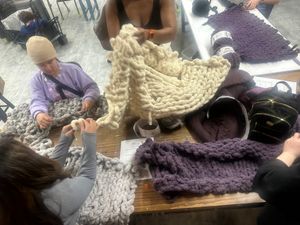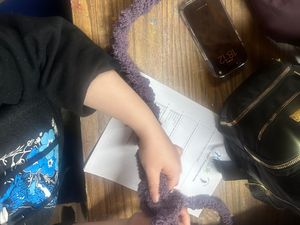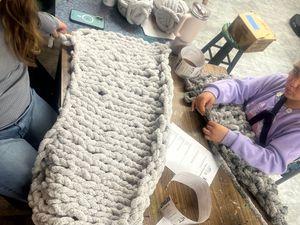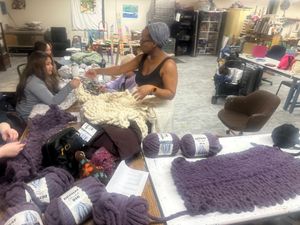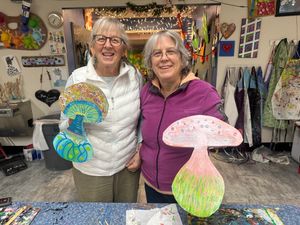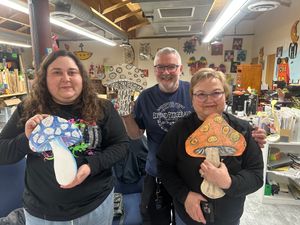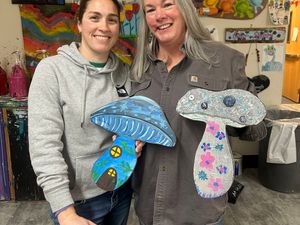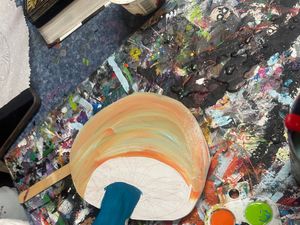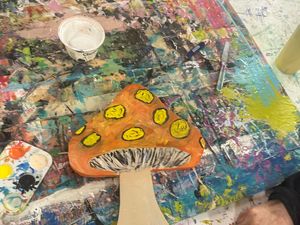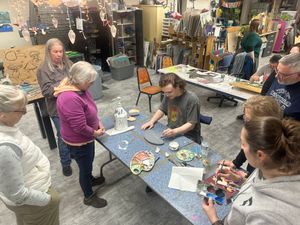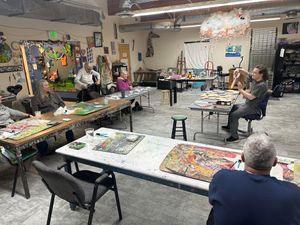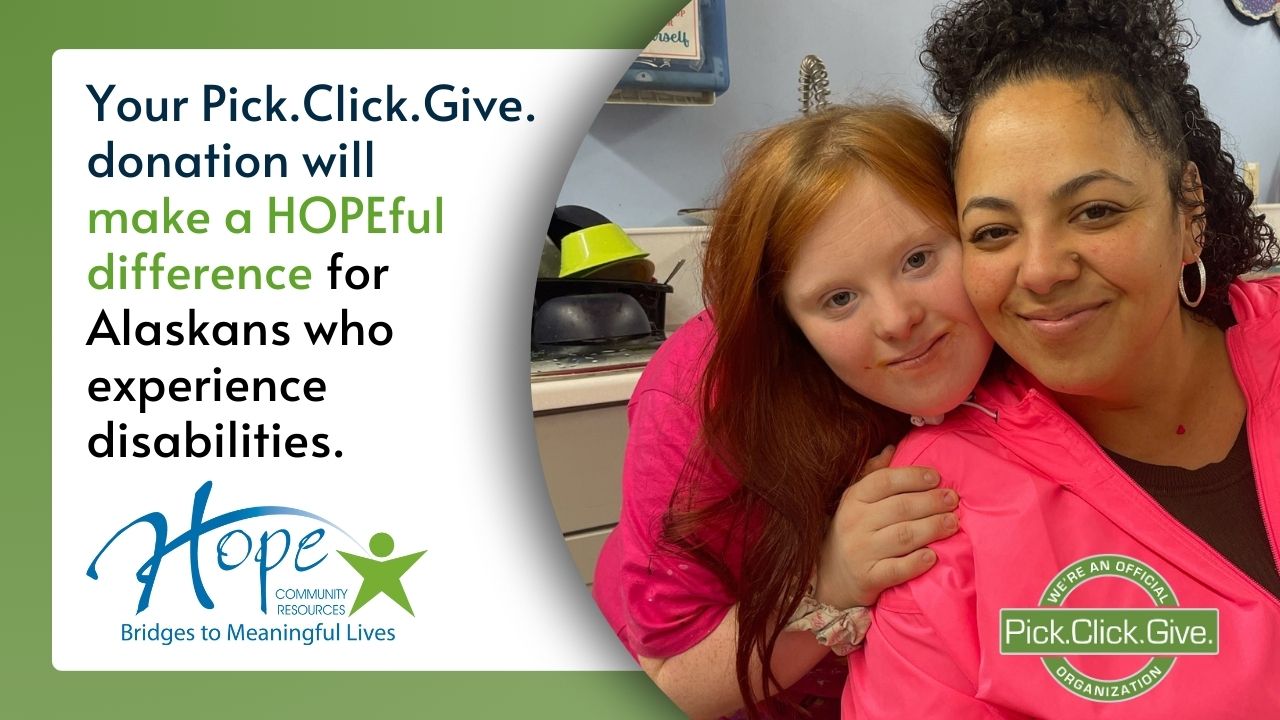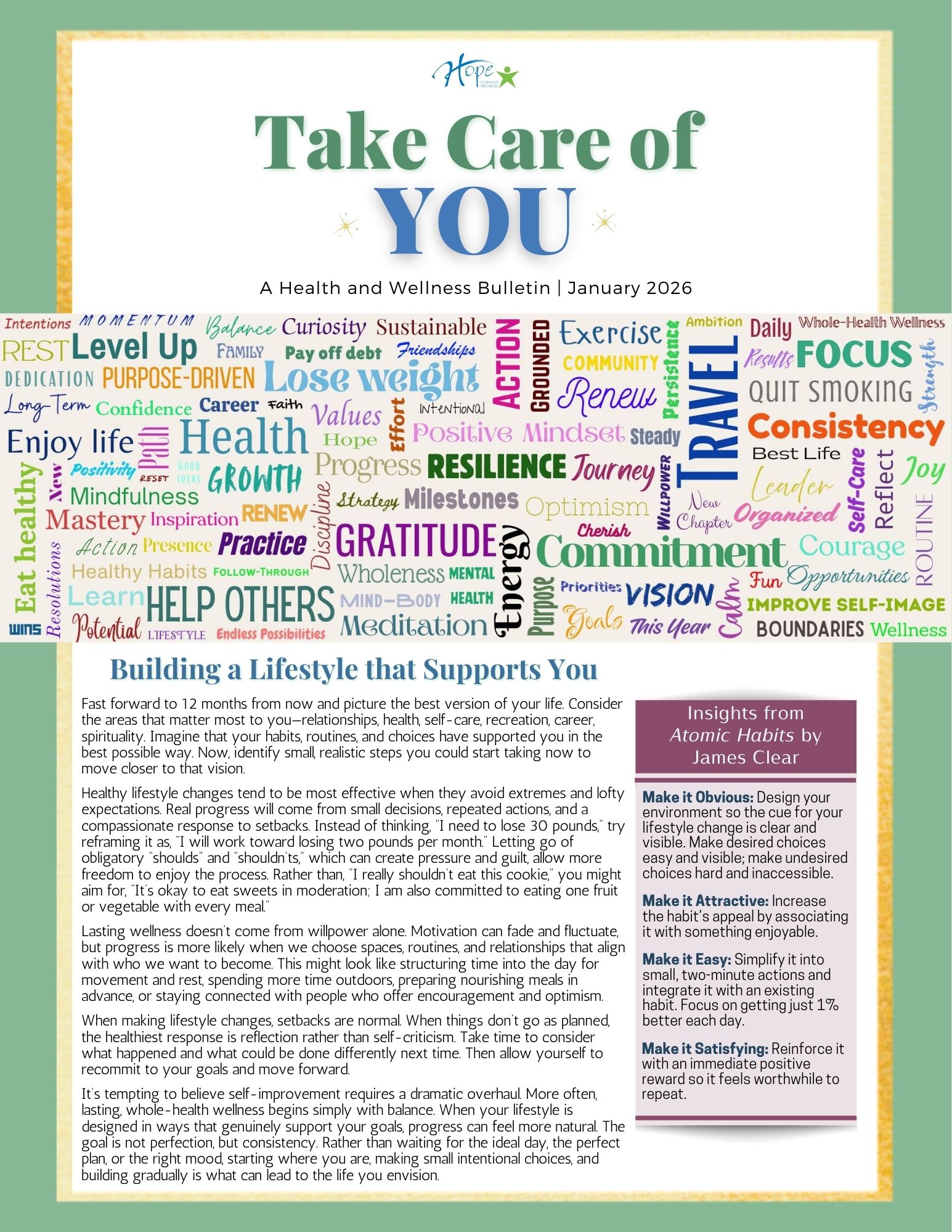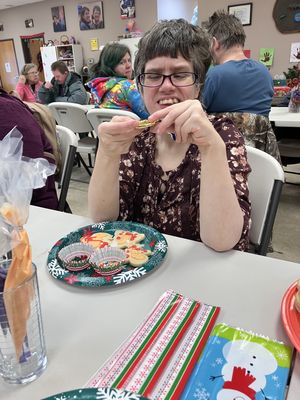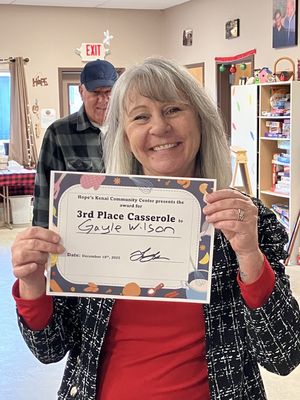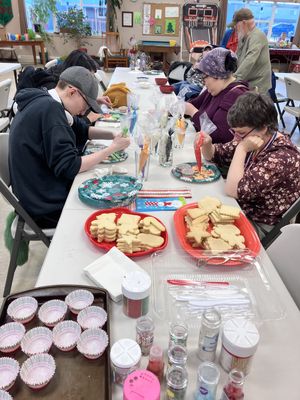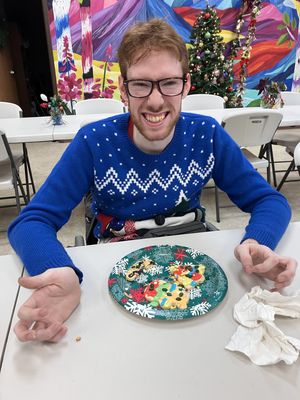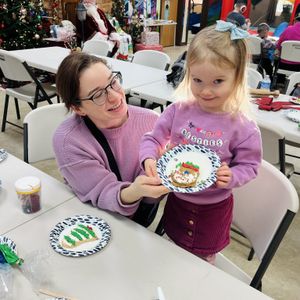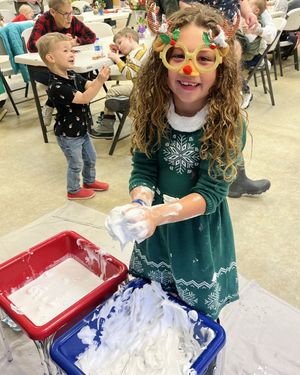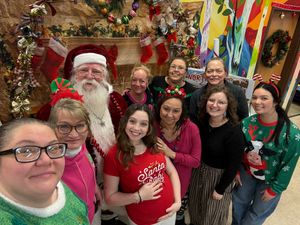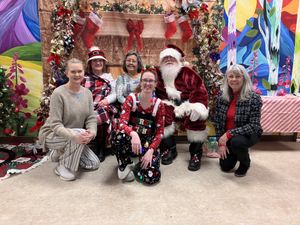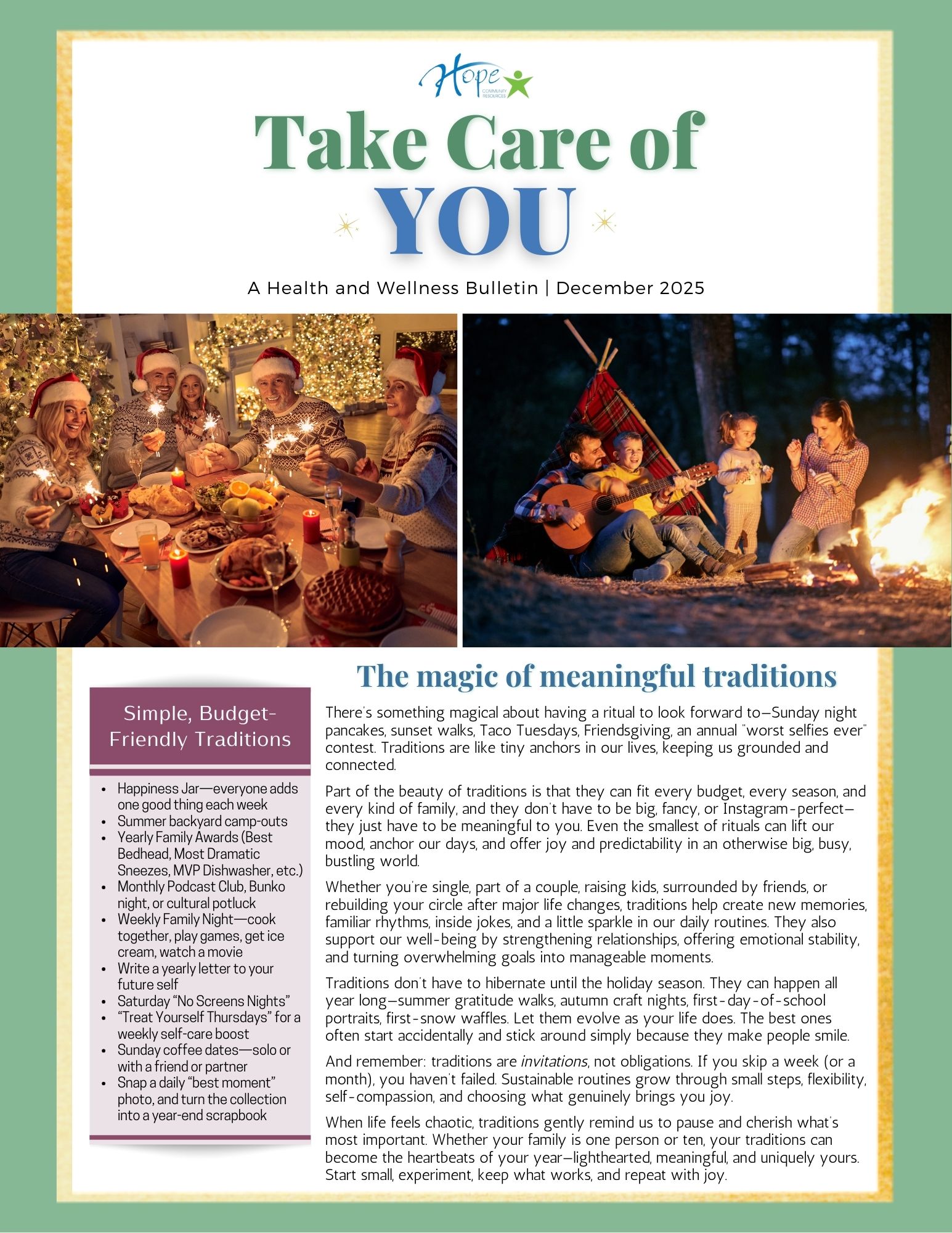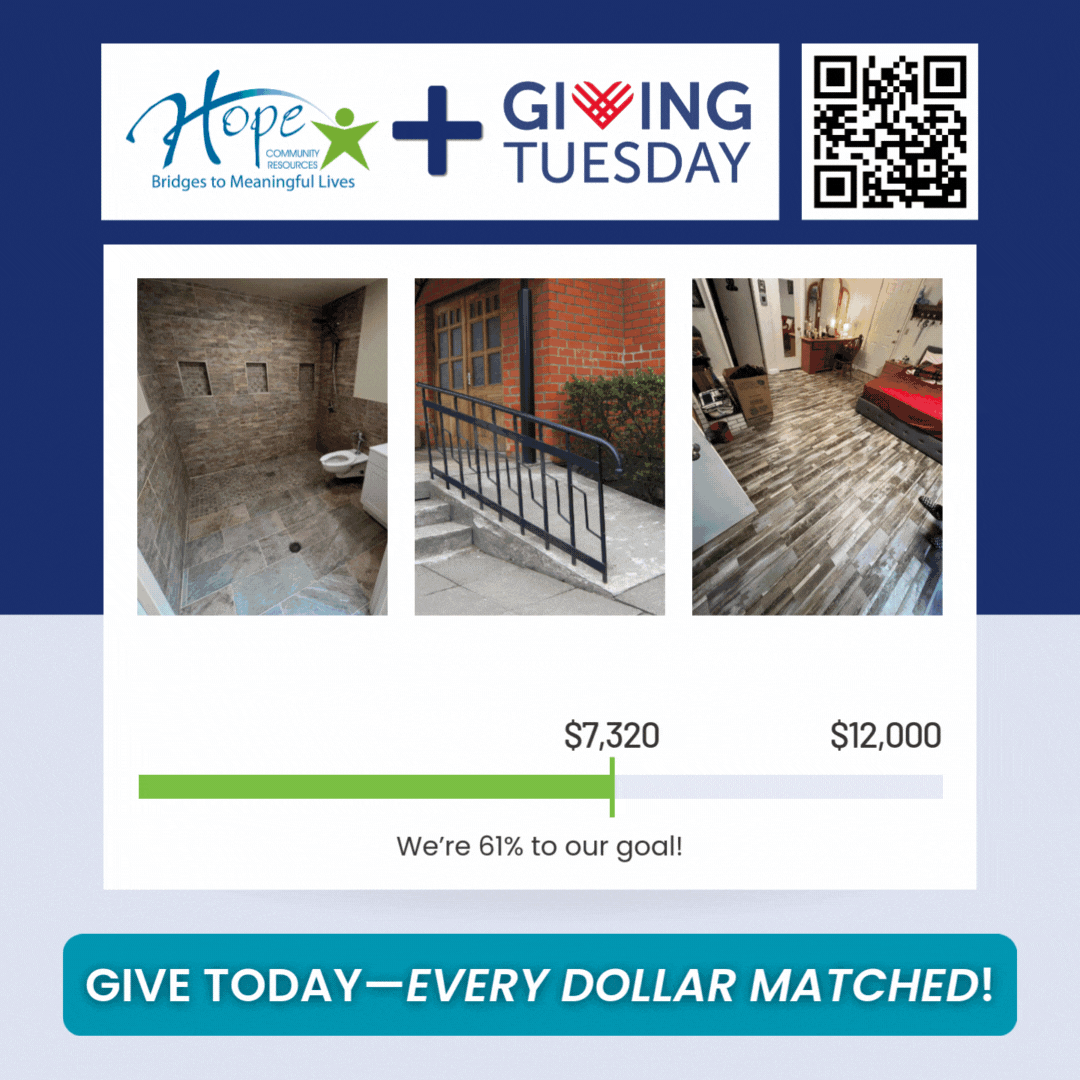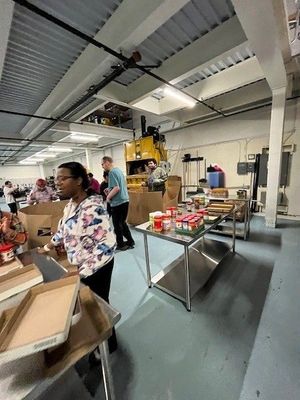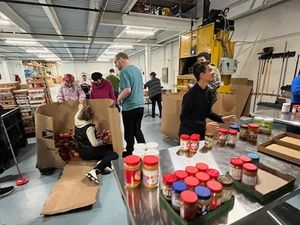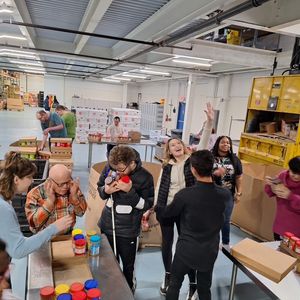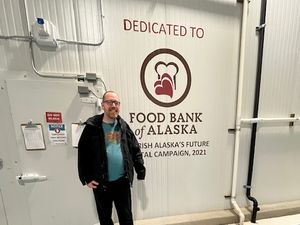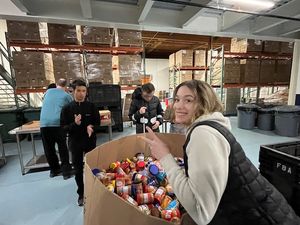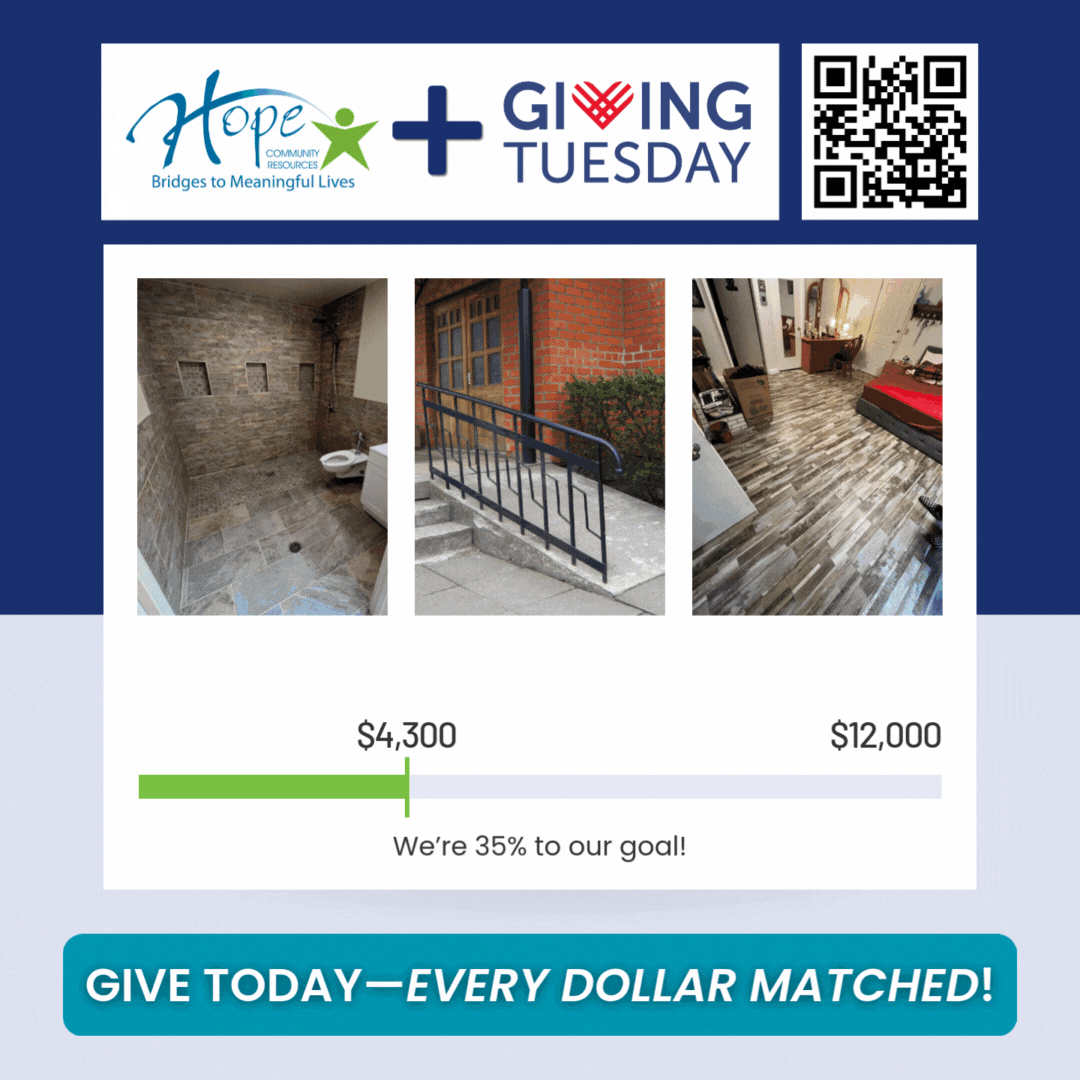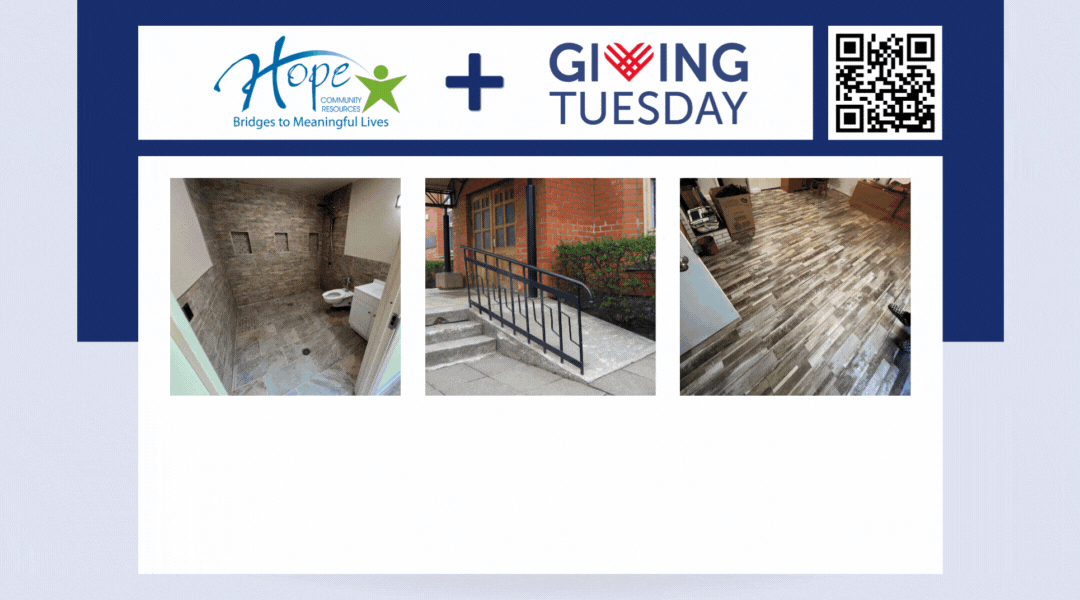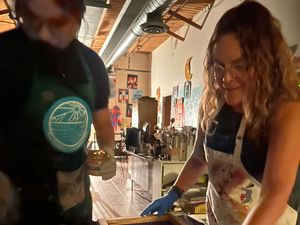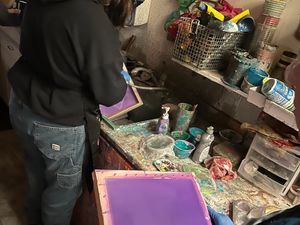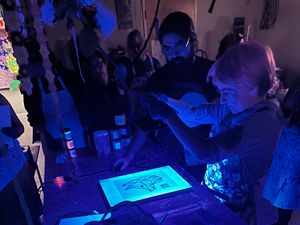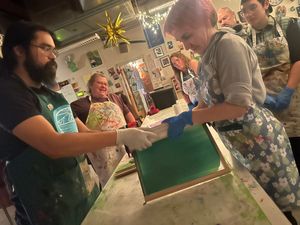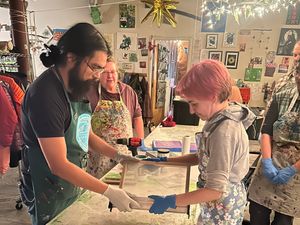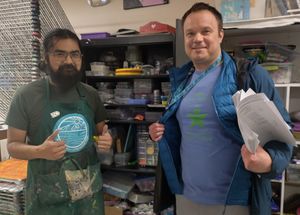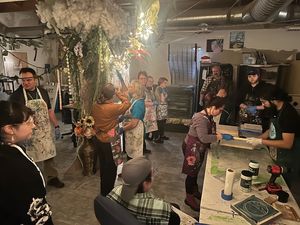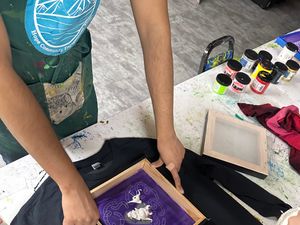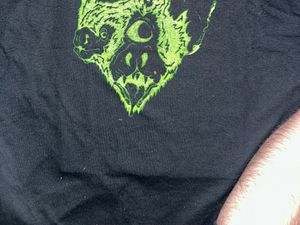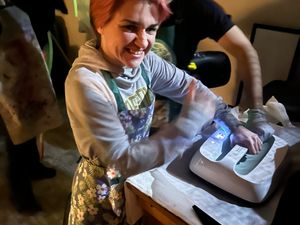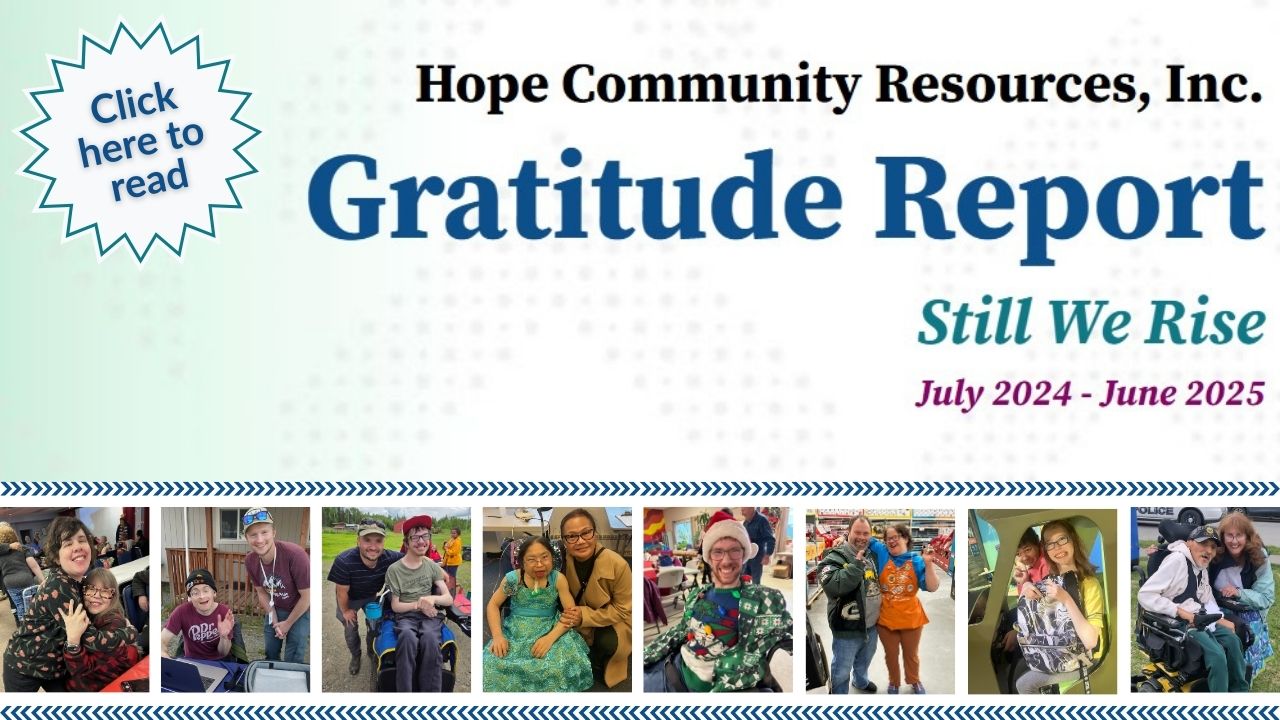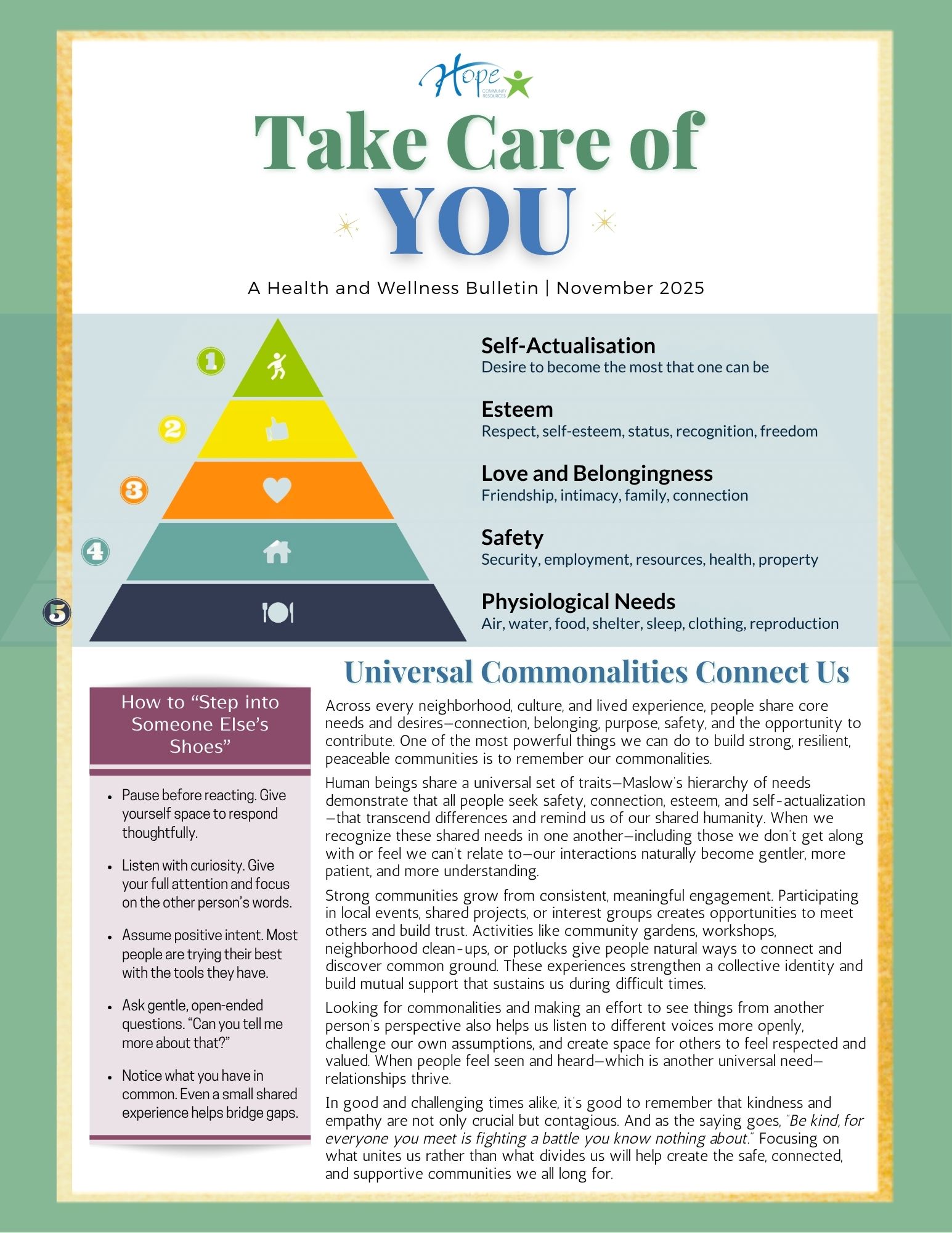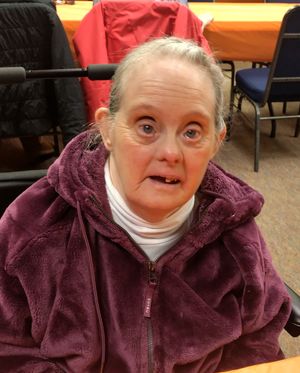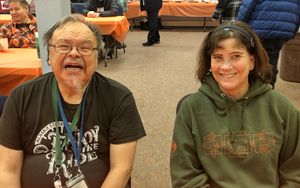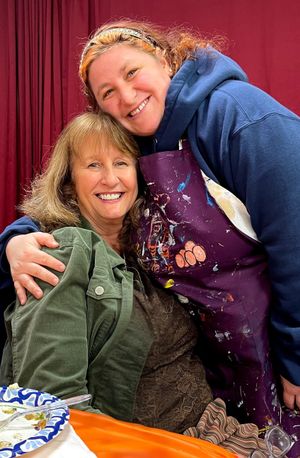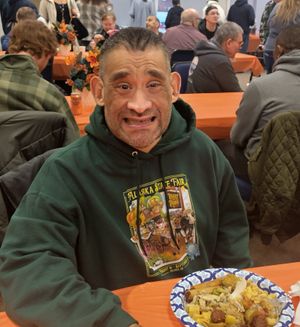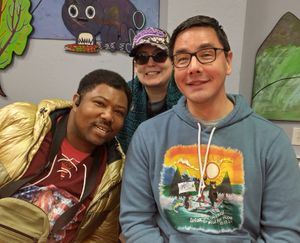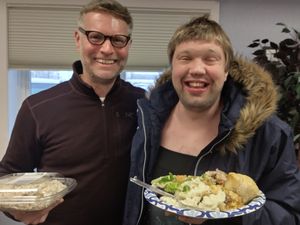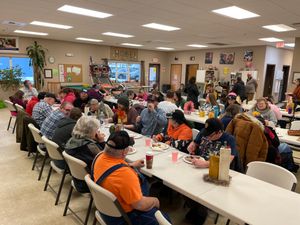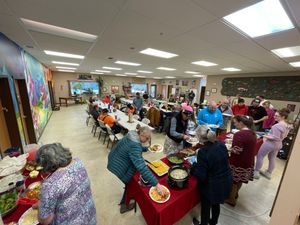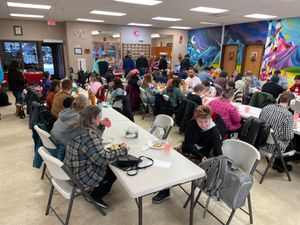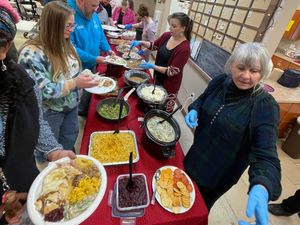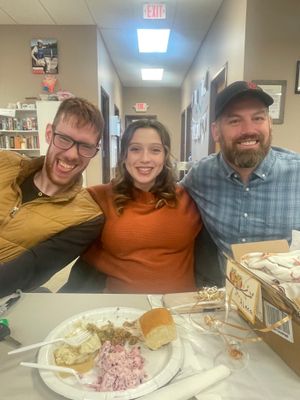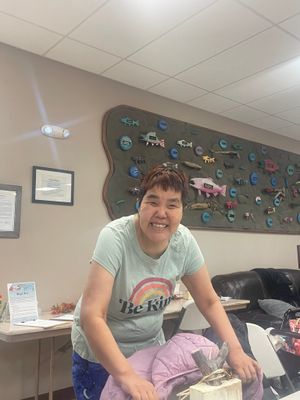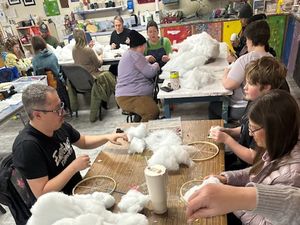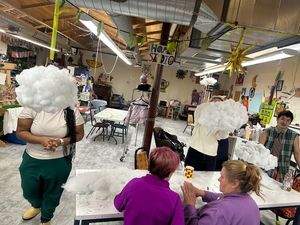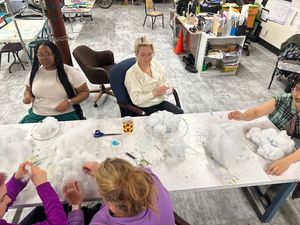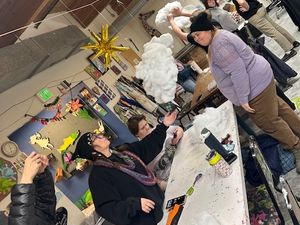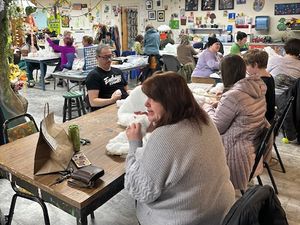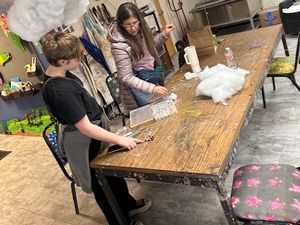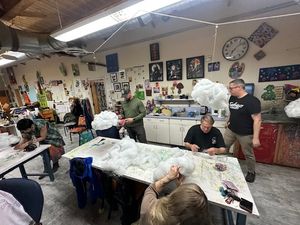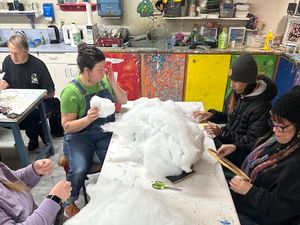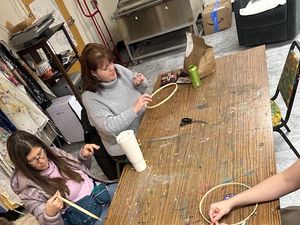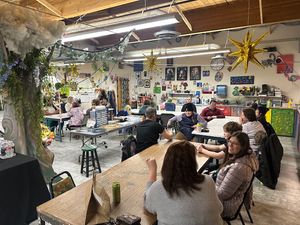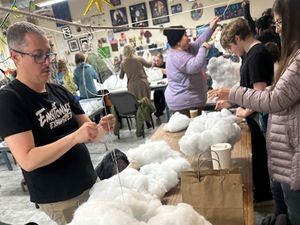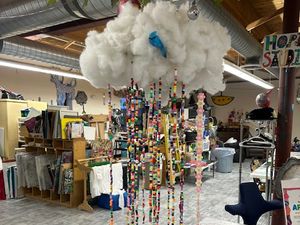Happy Hope Anniversary, Sharon Miranda
January 28, 2026
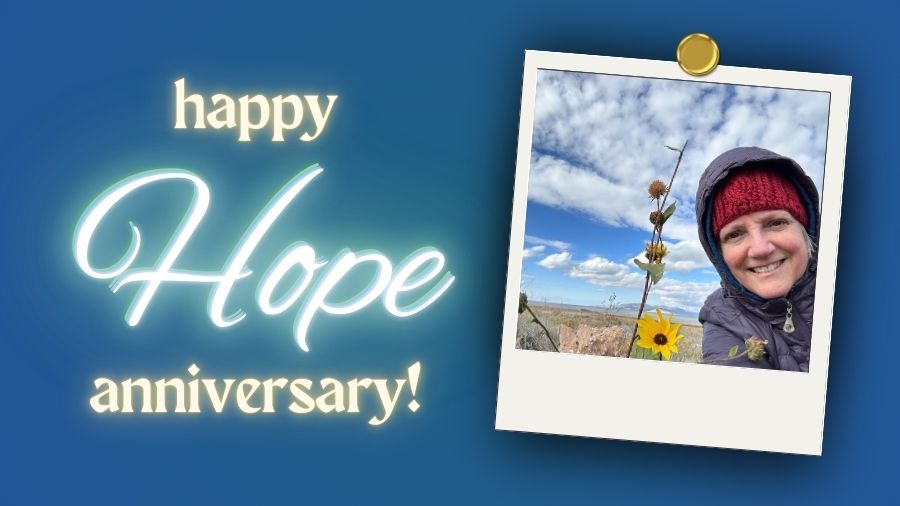
Art Nights: Mushroom Painting & Finger-Knit Blankets
January 16, 2026
Pick Click Give
January 15, 2026
Building a Lifestyle that Supports You
January 13, 2026
Fast forward to 12 months from now and picture the best version of your life. Consider the areas that matter most to you—relationships, health, self-care, recreation, career, spirituality. Imagine that your habits, routines, and choices have supported you in the best possible way. Now, identify small, realistic steps you could start taking now to move closer to that vision.
Healthy lifestyle changes tend to be most effective when they avoid extremes and lofty expectations. Real progress will come from small decisions, repeated actions, and a compassionate response to setbacks. Instead of thinking, “I need to lose 30 pounds,” try reframing it as, “I will work toward losing two pounds per month.” Letting go of obligatory “shoulds” and “shouldn’ts,” which can create pressure and guilt, allow more freedom to enjoy the process. Rather than, “I really shouldn’t eat this cookie,” you might aim for, “It’s okay to eat sweets in moderation; I am also committed to eating one fruit or vegetable with every meal.”
Lasting wellness doesn’t come from willpower alone. Motivation can fade and fluctuate, but progress is more likely when we choose spaces, routines, and relationships that align with who we want to become. This might look like structuring time into the day for movement and rest, spending more time outdoors, preparing nourishing meals in advance, or staying connected with people who offer encouragement and optimism.
When making lifestyle changes, setbacks are normal. When things don’t go as planned, the healthiest response is reflection rather than self-criticism. Take time to consider what happened and what could be done differently next time. Then allow yourself to recommit to your goals and move forward.
It’s tempting to believe self-improvement requires a dramatic overhaul. More often, lasting, whole-health wellness begins simply with balance. When your lifestyle is designed in ways that genuinely support your goals, progress can feel more natural. The goal is not perfection, but consistency. Rather than waiting for the ideal day, the perfect plan, or the right mood, starting where you are, making small intentional choices, and building gradually is what can lead to the life you envision.
Insights from Atomic Habits by James Clear
- Make it Obvious: Design your environment so the cue for your lifestyle change is clear and visible. Make desired choices easy and visible; make undesired choices hard and inaccessible.
- Make it Attractive: Increase the habit’s appeal by associating it with something enjoyable.
- Make it Easy: Simplify it into small, two-minute actions and integrate it with an existing habit. Focus on getting just 1% better each day.
- Make it Satisfying: Reinforce it with an immediate positive reward so it feels worthwhile to repeat.
Wells Fargo Foundation Grant
January 9, 2026
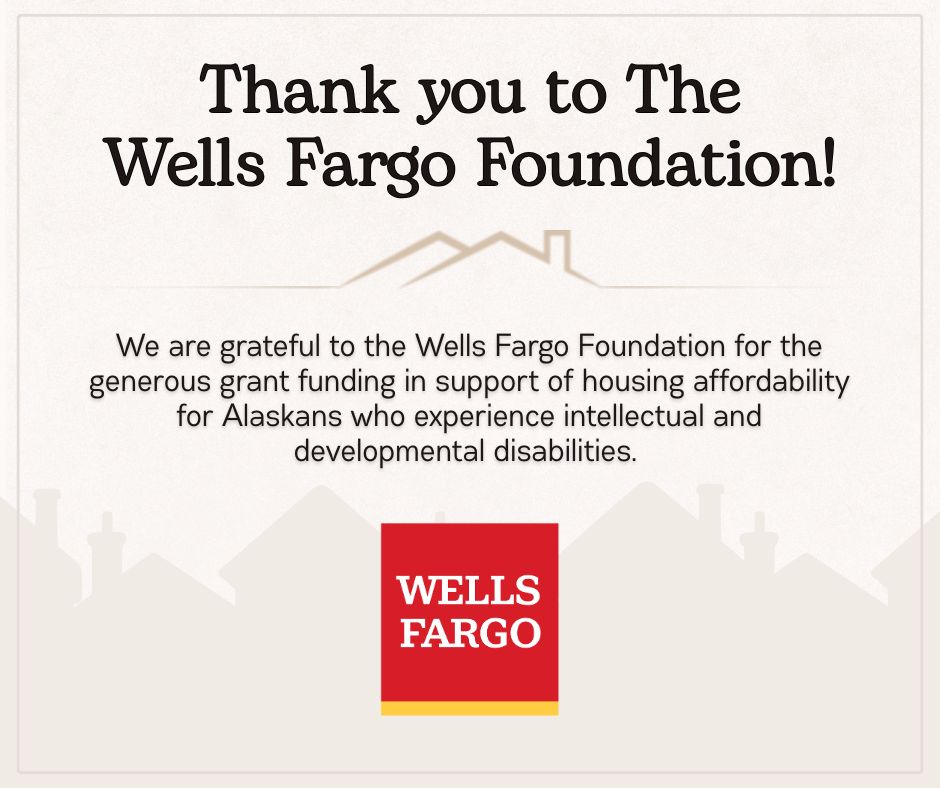
Happy Hope Anniversary, Jacob Shaffer
January 8, 2026
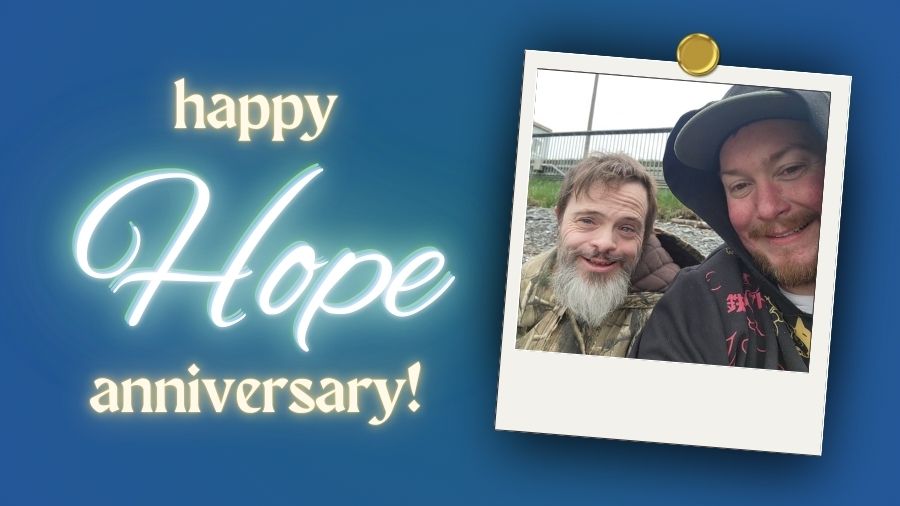
Thank you, Mat-Su Health Foundation!
January 6, 2026
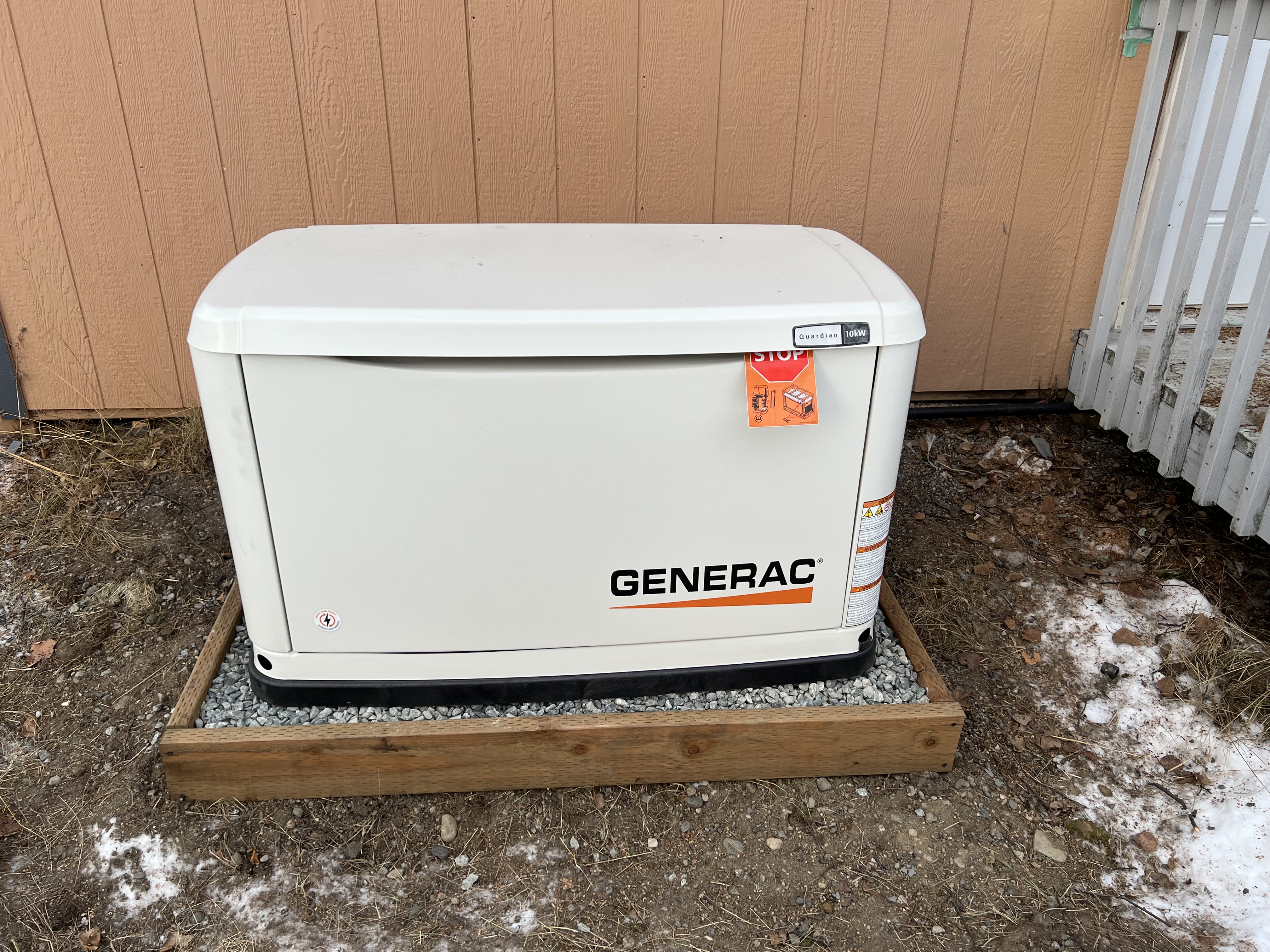
Kenai Holidays
December 26, 2025
Our Kenai team has been all about the holiday spirit this month with a cookie decorating party, casserole contest, a socks swap, dancing to DJ Connor's holiday tunes, welcoming community members and friends from Frontier Community Services and Kenaitze Indian Tribe, and even an appearance from Santa and Mrs. Claus!
The magic of meaningful traditions
December 24, 2025
There’s something magical about having a ritual to look forward to—Sunday night pancakes, sunset walks, Taco Tuesdays, Friendsgiving, an annual “worst selfies ever” contest. Traditions are like tiny anchors in our lives, keeping us grounded and connected.
Part of the beauty of traditions is that they can fit every budget, every season, and every kind of family, and they don’t have to be big, fancy, or Instagram-perfect—they just have to be meaningful to you. Even the smallest of rituals can lift our mood, anchor our days, and offer joy and predictability in an otherwise big, busy, bustling world.
Whether you’re single, part of a couple, raising kids, surrounded by friends, or rebuilding your circle after major life changes, traditions help create new memories, familiar rhythms, inside jokes, and a little sparkle in our daily routines. They also support our well-being by strengthening relationships, offering emotional stability, and turning overwhelming goals into manageable moments.
Traditions don’t have to hibernate until the holiday season. They can happen all year long—summer gratitude walks, autumn craft nights, first-day-of-school portraits, first-snow waffles. Let them evolve as your life does. The best ones often start accidentally and stick around simply because they make people smile.
And remember: traditions are invitations, not obligations. If you skip a week (or a month), you haven’t failed. Sustainable routines grow through small steps, flexibility, self-compassion, and choosing what genuinely brings you joy.
When life feels chaotic, traditions gently remind us to pause and cherish what’s most important. Whether your family is one person or ten, your traditions can become the heartbeats of your year—lighthearted, meaningful, and uniquely yours. Start small, experiment, keep what works, and repeat with joy.
Simple, Budget-Friendly Traditions
- Happiness Jar—everyone adds one good thing each week
- Summer backyard camp-outs
- Yearly Family Awards (Best Bedhead, Most Dramatic Sneezes, MVP Dishwasher, etc.)
- Monthly Podcast Club, Bunko night, or cultural potluck
- Weekly Family Night—cook together, play games, get ice cream, watch a movie
- Write a yearly letter to your future self
- Saturday “No Screens Nights”
- “Treat Yourself Thursdays” for a weekly self-care boost
- Sunday coffee dates—solo or with a friend or partner
- Snap a daily “best moment” photo, and turn the collection into a year-end scrapbook
Seasons greetings to you and yours ❄️
December 23, 2025

The holidays have a way of encouraging reflection and gratitude—and when we look back on the past year, what stands out most is the community that surrounds us. Your partnership, your generosity, your advocacy, and the trust you place in us. Your support matters, and it means the world to us.
This season means something different for everyone. Some celebrate Christmas, Hanukkah, Kwanzaa, Winter Solstice, or other holidays or traditions from around the world. Others use this time to rest, reconnect, or simply enjoy a slower pace. However you observe—or choose not to—we honor the diversity of cultures, beliefs, and traditions that enrich our community.
We also know this time of year can stir up a wide mix of feelings. Joy, wonder, nostalgia, generosity, stress, grief, fatigue. Wherever you find yourself this season, we wish for you moments of peace, comfort, and quality time with loved ones.
Looking ahead to 2026, we feel tremendous hope for what’s possible. Together, we can continue creating opportunities, dignity, and belonging for people with intellectual and developmental disabilities—and strengthen the community that surrounds them.
We’re grateful to be welcoming the holiday season and the coming year together with you.
Seasons greetings to you and yours!
Sincerely,
Hope's Strategic Leadership Team

We are 61% to our Goal
December 13, 2025
We are in the final stretch of our Giving Tuesday fundraising campaign to raise $12,000 to make an accessible housing dream come true for families with loved ones who experience disabilities.
Thanks to our generous community, we are 61% of the way to our goal. Truly, thank you to all 23 donors have contributed to support this need.
With one day left, we hope to make this dream a reality.
Thanks to a generous anonymous donor, all gifts donated by the end of the day tomorrow will be doubled up to $12,000. We need to raise $4,680 more to unlock the full matching gift, which would turn $12,000 into $24,000.
If 19 people each gave $250, we would cross the finish line! However, every single gift matters and every dollar counts, so even $10 will help bring us closer.
All gifts will support the renovation of a Hope home in Anchorage, including:
- An accessible bathroom remodel
- A new entry ramp
- Updated flooring
- Fresh paint and other critical improvements
This is about necessary home renovations, yes, but it isn’t only about that—it’s also about giving people the gift of dignity, independence, and the feeling of truly being at home. When a space is accessible, it opens so many doors to daily life that many of us take for granted. A home built around a person’s needs means fewer daily barriers and more autonomy. It eases strain on families, lowers fall risks, and supports more self-directed living.
If you’ve already given, thank you Communications for your generosity! If you haven’t yet, please consider giving today or tomorrow—your gift will be doubled dollar-for-dollar, making its impact .
Thank you for supporting Hope and for showing up for the people and families who choose our services. We are incredibly grateful to be in this with you.
Lesko Discovery Center team volunteers at local food bank
December 12, 2025
International Human Rights Day
December 10, 2025
Today, International Human Rights Day, we’re lifting up our belief that every person deserves dignity, equality, and the chance to live with purpose.
In honor of Human Rights Day, help fund real change for the people we serve.
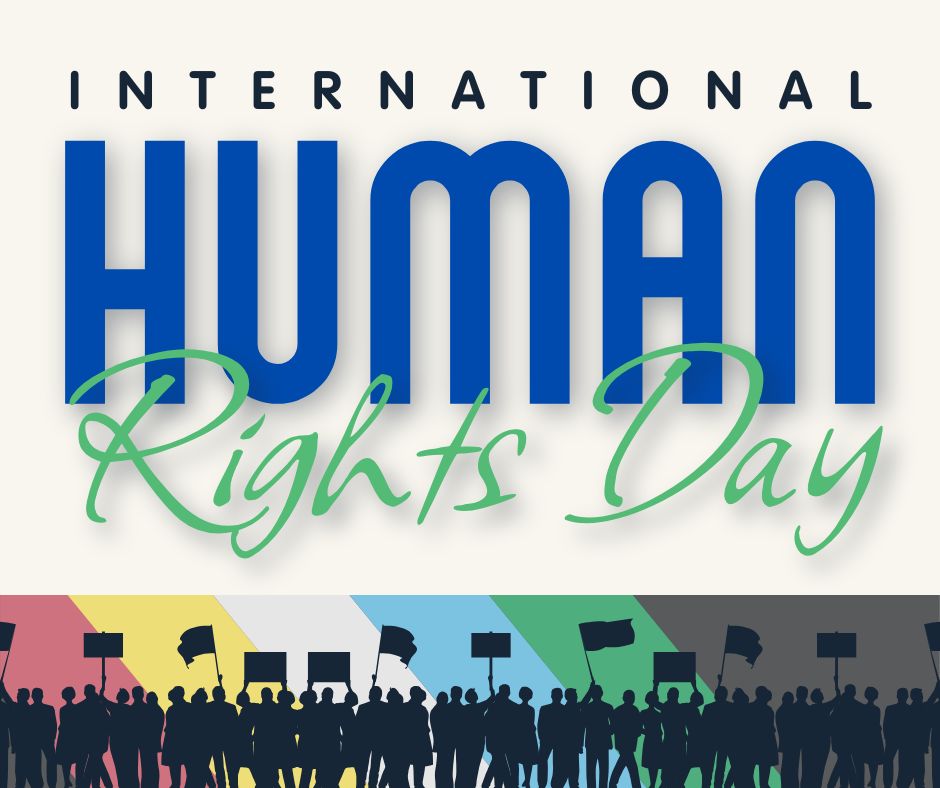
Winter Holidays 2025
December 5, 2025
There are so many wonderful holidays observed by different cultures this time of year! Holidays like St. Nicholas Day (tomorrow), Hanukkah, Mochitsuki, Saturnalia, Las Posadas, Kwanzaa, and more.
If there is a holiday or tradition that is meaningful to you and your culture, we invite you to share it with us in the comments!
We are 35% to our Goal
December 5, 2025
We are 35% of the way toward our goal of raising $12,000 to make an accessible housing dream come true for families with disabilities. Thanks to a generous donor, all gifts will be matched dollar-for-dollar, turning $12,000 into $24,000!
What does home mean to you? For people who experience disabilities, home means safety, accessibility, and the freedom to live fully as themselves. Hope has a ranch-style home that needs essential updates to make that dream a reality—and you can help make it happen.
International Day of Individuals with Disabilities
December 3, 2025
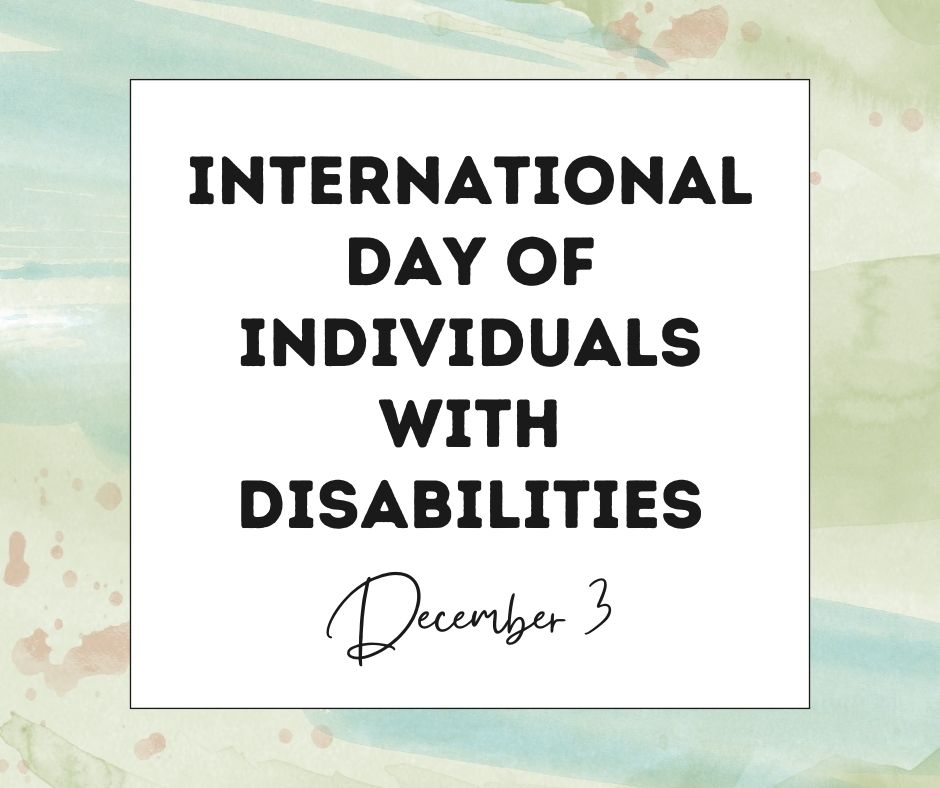
Giving Tuesday 2025
December 2, 2025
For decades, Hope has walked alongside families to pursue their dreams. Dreams of independence, of belonging. Dreams of not just living in a house, but in a home.
What does home mean to you?
For many of the people and families we support, home means safety, accessibility, comfort—and the chance to live fully as themselves. But not everyone has that opportunity. What would you do if your home didn’t support your independence? What if your accessibility needs weren’t met?
Today is Giving Tuesday, and your gift can change someone’s life—many people’s lives, in fact! We invite you to join us in fulfilling one very special dream for families—creating a safe, comfortable, accessible home for their loved ones who experience intellectual and developmental disabilities.
Hope owns a ranch-style home in Anchorage that is in need of some updates. Your funding will support the renovation of this home for the people and families who choose Hope's services, including:
- A full, accessible bathroom remodel
- Building an entry ramp
- Installing new flooring
- Fresh paint, and more
Double Your Impact
Now through December 16, your Giving Tuesday contribution will go twice as far as any other time of the year. A generous anonymous donor has offered a matching gift of $12,000, and we need your help to unlock every dollar. Your Giving Tuesday gift will double in impact — $10 will become $20, $100 will become $200. And if we reach the full $12,000, it will become $24,000!
Thank you for believing in Hope and the power of community and for supporting Hope in building bridges for the people and families we support to lead full, meaningful lives. Your generosity makes a great difference in helping those we support, and we are very grateful for your investment!
Art Night: Screen Printing
November 28, 2025
- "The people and environment."
- "I made something new."
- "The whole process was very cool. Enjoyed every moment of it. The actual painting process was my favorite."
- "Learning a new skill and having mistakes be normalized and encouraged."
- "Meeting new people, seeing friends, and learning an awesome creative technique."
- "Avery you were amazing, patient, and made it so fun!"
- "We could use our own design."
- "The process and you get a shirt – it was awesome."
Hope's 2025 Gratitude Report
November 26, 2025
With full hearts and grateful spirits, we are pleased to share this year’s Gratitude Report—a look back at all we’ve achieved together as a community. Please take a moment to look back at the past fiscal year with us.
In the report, you will find more than numbers and metrics.
You will see how our collective efforts are making a positive difference in people's lives, how Hope has risen above challenges and deepened our roots, and how we have continued to reach outward and forward. You will see how every hour volunteered, every grant awarded, and every dollar donated has become a stepping stone toward our shared vision of a world where everyone has equal opportunities to lead full, meaningful lives.
And you will see a mission that grows stronger because of people like you who believe in it.
And most of all, you will see our gratitude to you, Communications. To our donors, grant funders, community partners, families, staff, and champions of our mission. Hope continues to rise because you continue to stand with us.
We invite you to explore the 2025 Gratitude Report. We hope this report brings you pride, joy, and renewed confidence in what we are accomplishing together.
Today, tomorrow, and every day forward—still we rise.
Universal Commonalities Connect Us
November 25, 2025
Across every neighborhood, culture, and lived experience, people share core needs and desires—connection, belonging, purpose, safety, and the opportunity to contribute. One of the most powerful things we can do to build strong, resilient, peaceable communities is to remember our commonalities.
Human beings share a universal set of traits—Maslow’s hierarchy of needs demonstrate that all people seek safety, connection, esteem, and self-actualization—that transcend differences and remind us of our shared humanity. When we recognize these shared needs in one another—including those we don’t get along with or feel we can’t relate to—our interactions naturally become gentler, more patient, and more understanding.
Strong communities grow from consistent, meaningful engagement. Participating in local events, shared projects, or interest groups creates opportunities to meet others and build trust. Activities like community gardens, workshops, neighborhood clean-ups, or potlucks give people natural ways to connect and discover common ground. These experiences strengthen a collective identity and build mutual support that sustains us during difficult times.
Looking for commonalities and making an effort to see things from another person’s perspective also helps us listen to different voices more openly, challenge our own assumptions, and create space for others to feel respected and valued. When people feel seen and heard—which is another universal need—relationships thrive.
In good and challenging times alike, it’s good to remember that kindness and empathy are not only crucial but contagious. And as the saying goes, “Be kind, for everyone you meet is fighting a battle you know nothing about.” Focusing on what unites us rather than what divides us will help create the safe, connected, and supportive communities we all long for.
How to “Step into Someone Else’s Shoes”:
- Pause before reacting. Give yourself space to respond thoughtfully.
- Listen with curiosity. Give your full attention and focus on the other person’s words.
- Assume positive intent. Most people are trying their best with the tools they have.
- Ask gentle, open-ended questions. “Can you tell me more about that?”
- Notice what you have in common. Even a small shared experience helps bridge gaps.
Harvest Potlucks
November 24, 2025
National Philanthropy Day
November 15, 2025
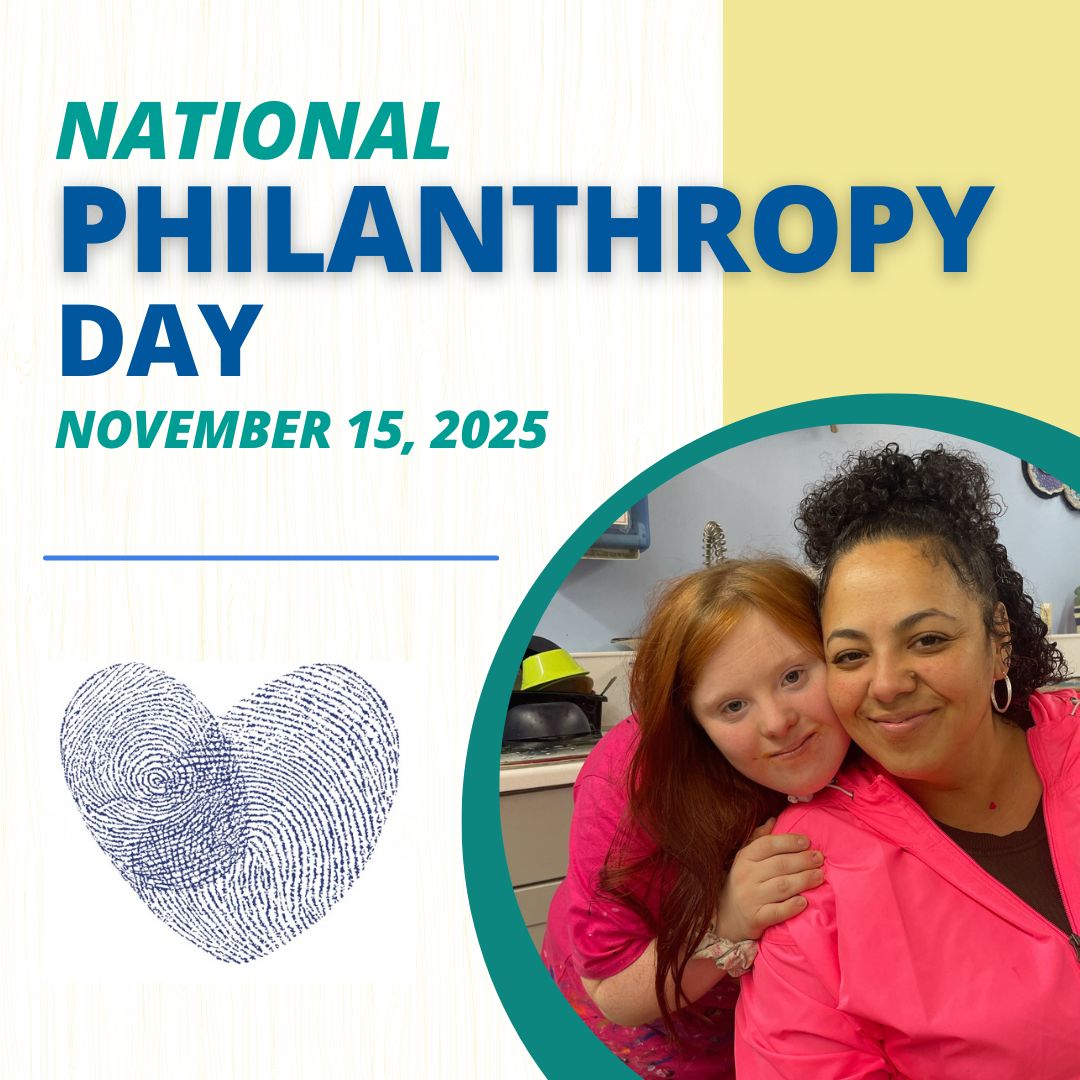
Happy Hope Anniversary, Judy Potts
November 12, 2025
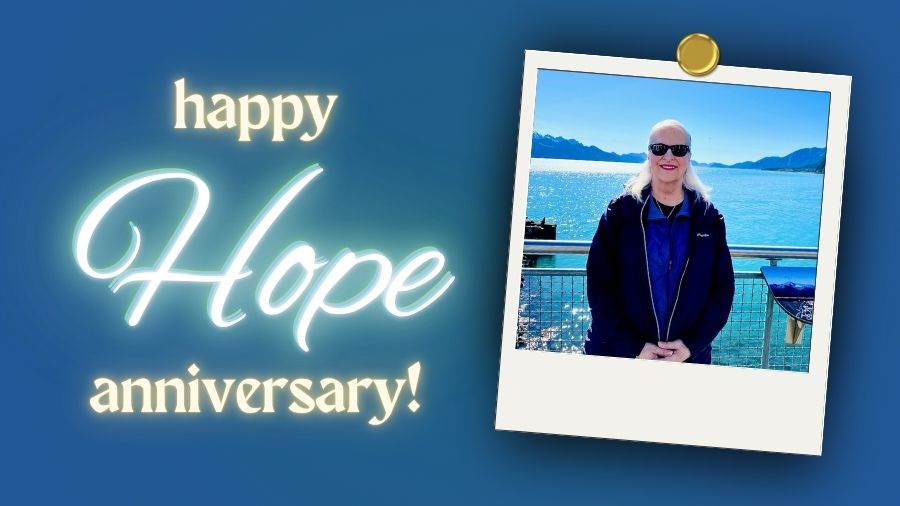
Art Night: Cloud Workshop
November 7, 2025
- “Being in class with other people, seeing the process and other people's clouds.”
- “Meeting new people… smiling, laughing, having fun.”
- “Doing something new with our community.”
- “Never get rid of Pedro!”
- “Thank you! This was a BLAST!”
